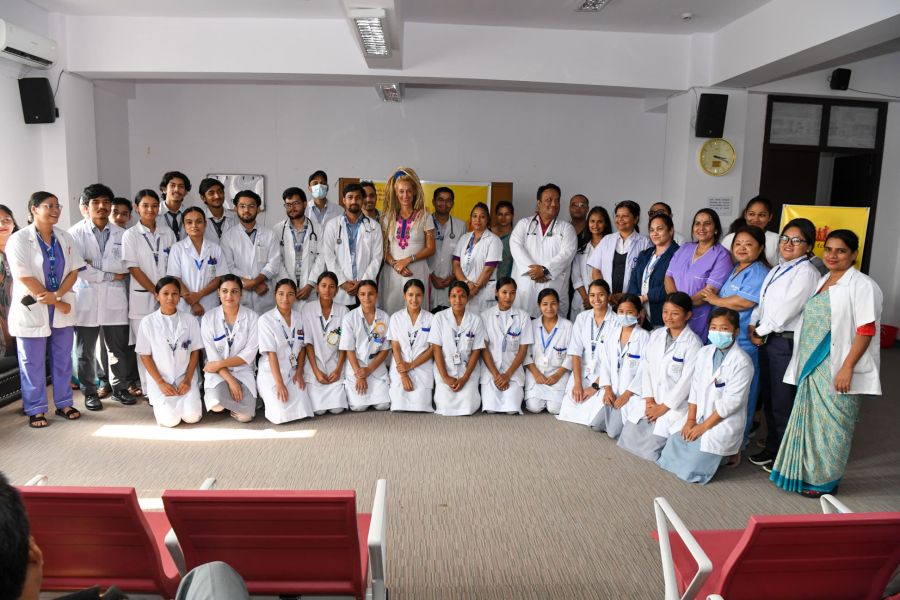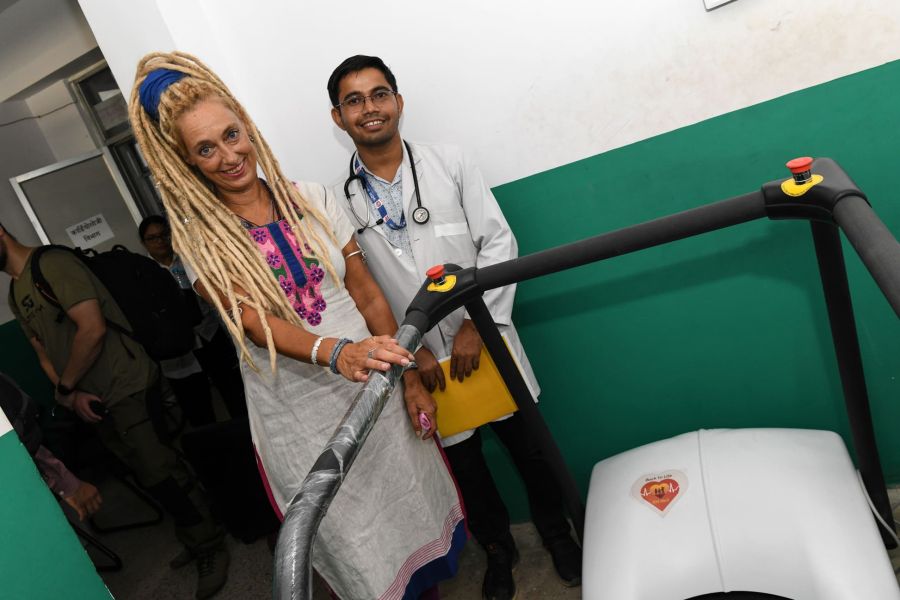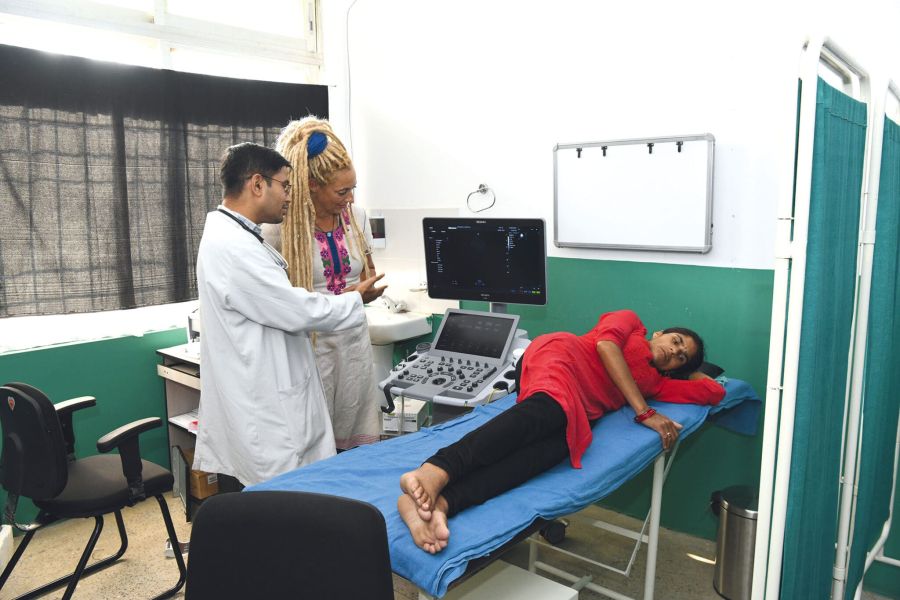The First
Heart Clinic
in Karnali
Die erste Herzklinik in Karnali
A lifesaver for countless affected: Back to Life establishes a cardiology department in the provincial hospital of Karnali.
Die Rettung für unzählige Betroffene: Back to Life richtet eine kardiologische Abteilung im Provinzkrankenhaus von Karnali ein.
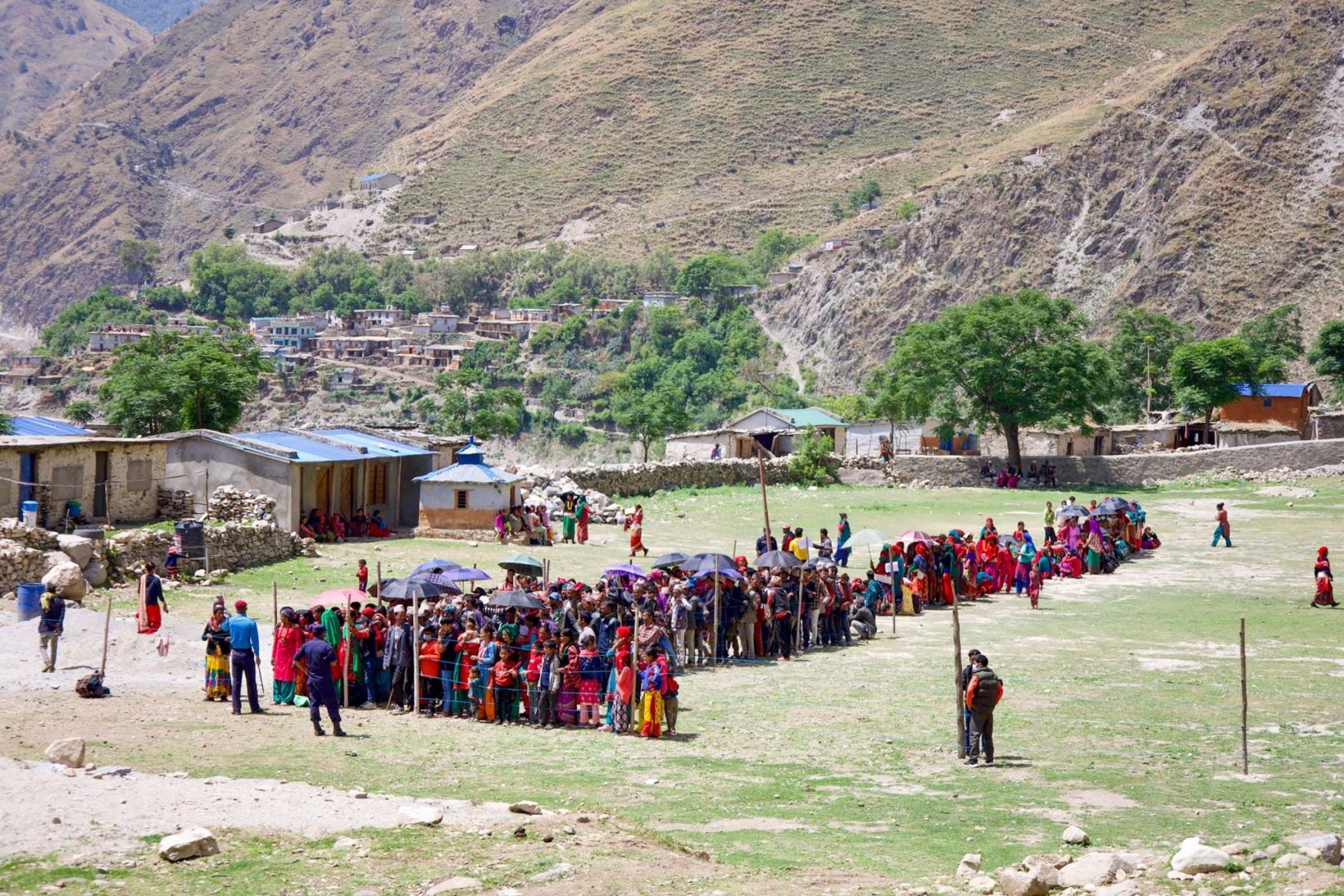
The Immense Need for Cardiological Care
Access to basic health care is not just a fundamental human right but also part of the UN’s Agenda 2030 goals. To move a step closer to achieving these, we have been organizing annual health camps in Nepal’s poorest region, Mugu, since 2011.
However, the United Nations’ sustainability goals cannot be achieved in the long term with interim solutions like our health camps – well-equipped, permanent facilities are needed. The need could hardly be greater, as we realized during our Cardiology Health Camp in Mugu in the summer of 2022. In collaboration with the Ganga Lal National Heart Centre in Kathmandu, echocardiography was used for examinations and diagnoses. A significant heart disease was diagnosed in 12% of all 630 patients.
Despite the increasing number of deaths due to heart diseases in Nepal, until recently, people in the Karnali province (with a population of 1.7 million) had no possibility of undergoing cardiological examinations. The state hospital in the Surkhet district, located at the gateway to the high mountains at 718 meters, is a reliable first point of call for an average of 1500 patients daily from Mugu and the nine other mountain districts of Karnali. However, until the last, there was neither a cardiology department nor any corresponding equipment available.
According to the hospital director in Surkhet, about 40 to 50 patients who urgently needed heart treatment came in daily. Most of them, however, remained untreated because the transport to the cardiology department in Kathmandu was simply unaffordable for most.
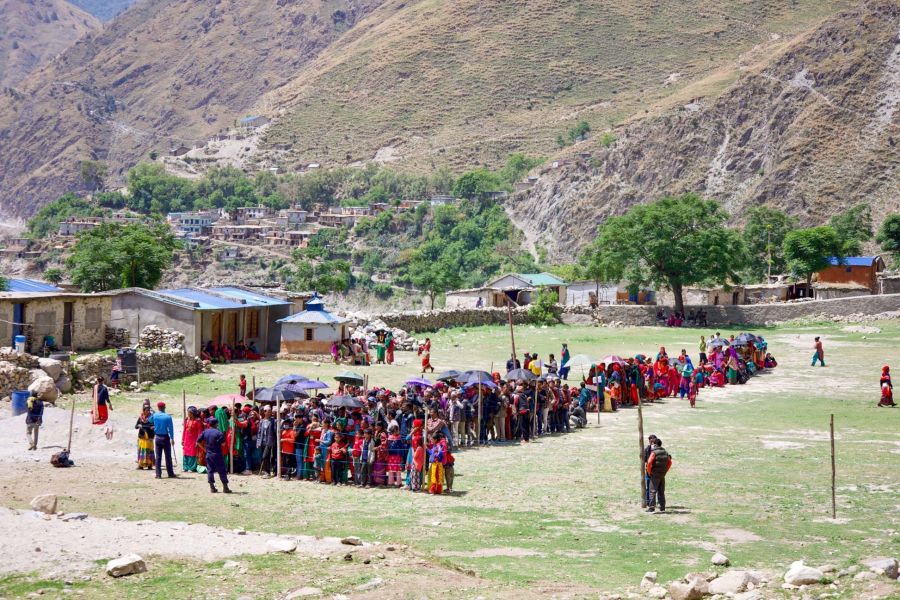
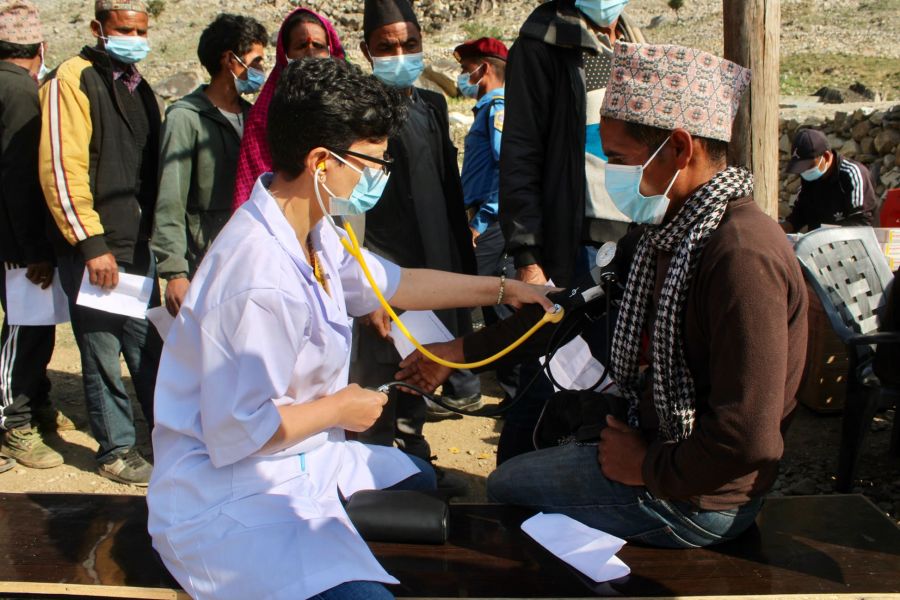
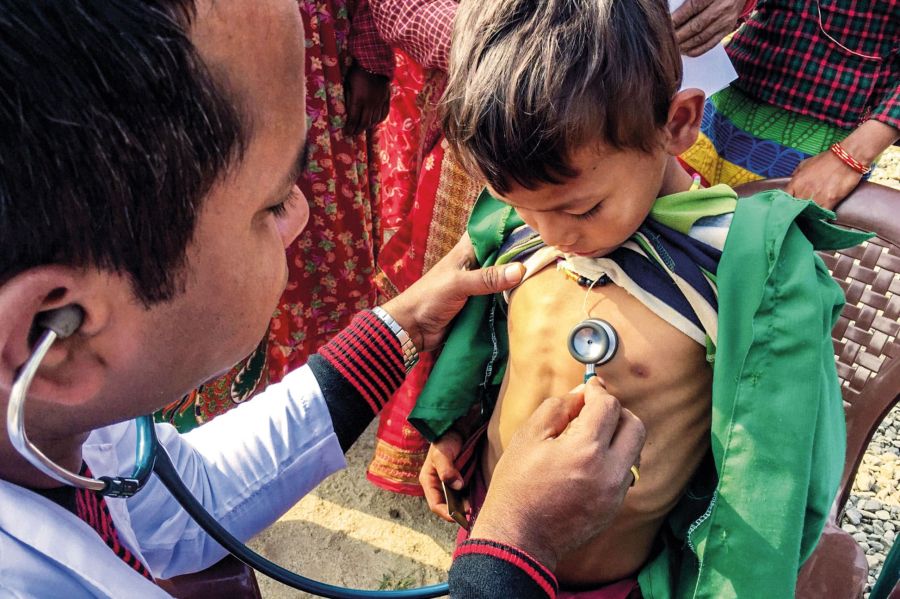
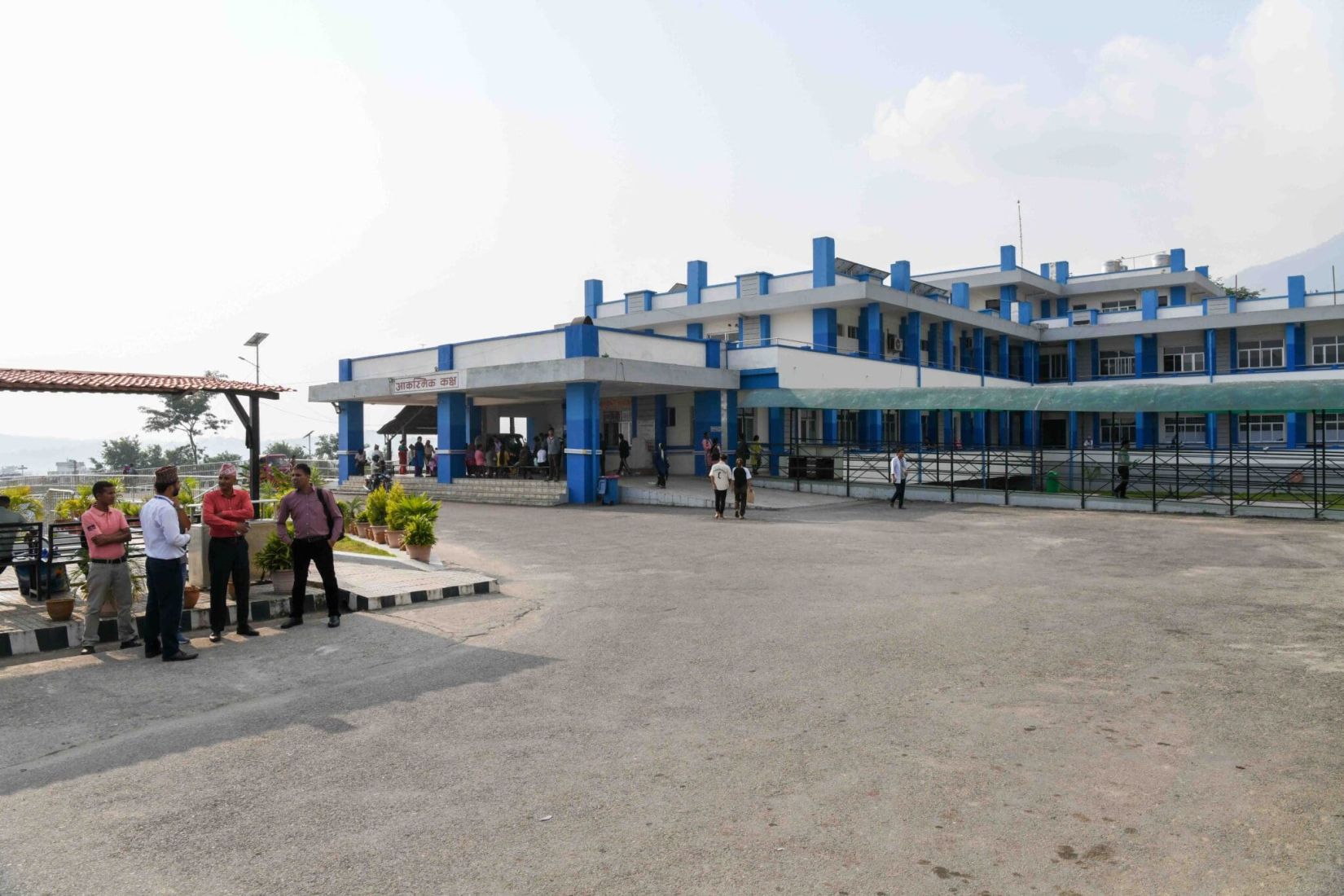
Our Heartfelt Concern
With the goal of providing cardiological care to the people in Karnali, Back to Life decided at the beginning of 2023 to support the provincial hospital in Surkhet in setting up a cardiology department. The planning included nursing and treatment components as well as preventive aspects. However, it was equally important to us to ensure the sustainability of the project in advance. Among other things, a contractual agreement was made with the Ministry of Health of the national government to dispatch qualified cardiologists to Surkhet. Additionally, a five-year maintenance contract for the donated equipment was included in the budget provided by Back to Life, amounting to 78,885 euros, and the necessary training for doctors and nursing staff was arranged in collaboration with the Ganga Lal National Heart Centre in the capital, Kathmandu. The training sessions have now been successfully completed. The costly equipment includes: echocardiogram, electrocardiogram, treadmill testing device, and heart monitor.
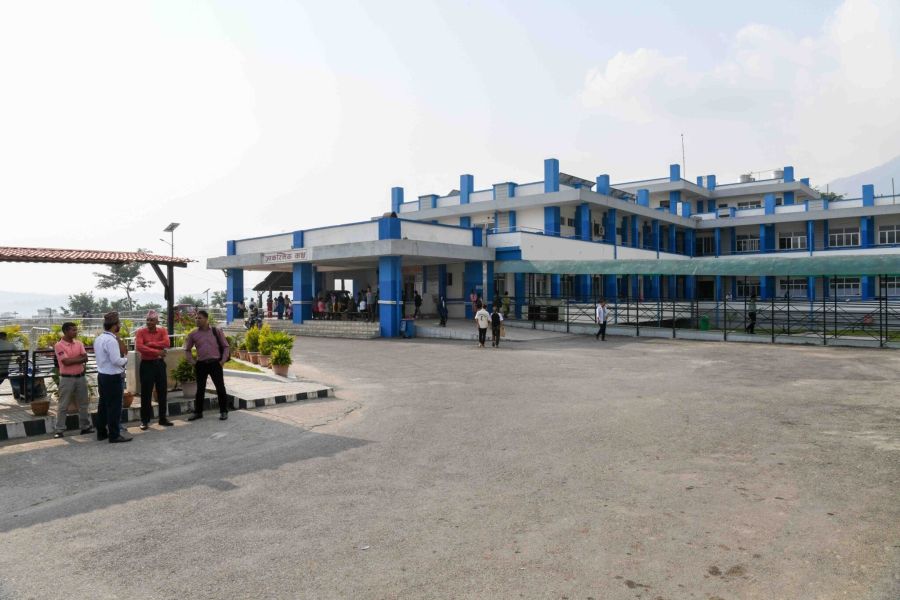
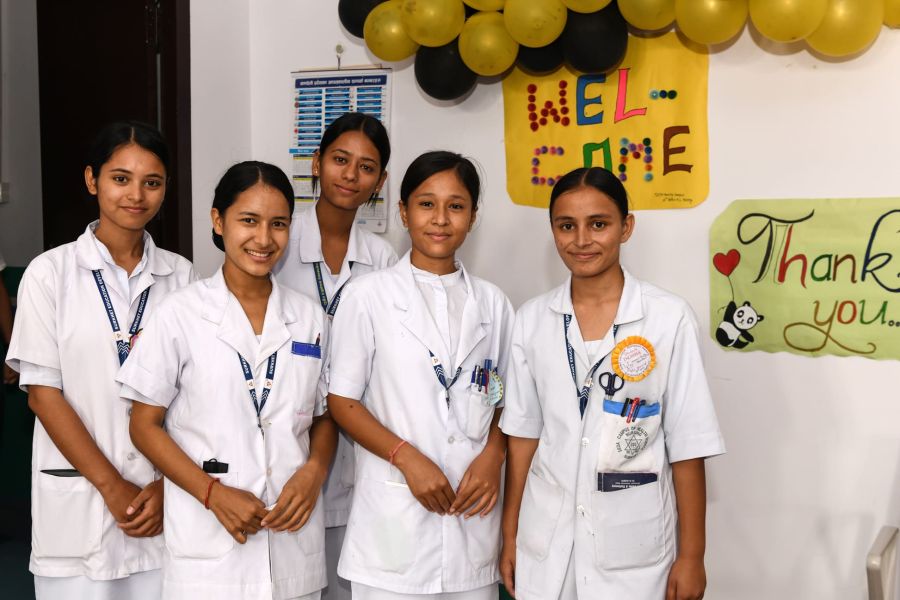
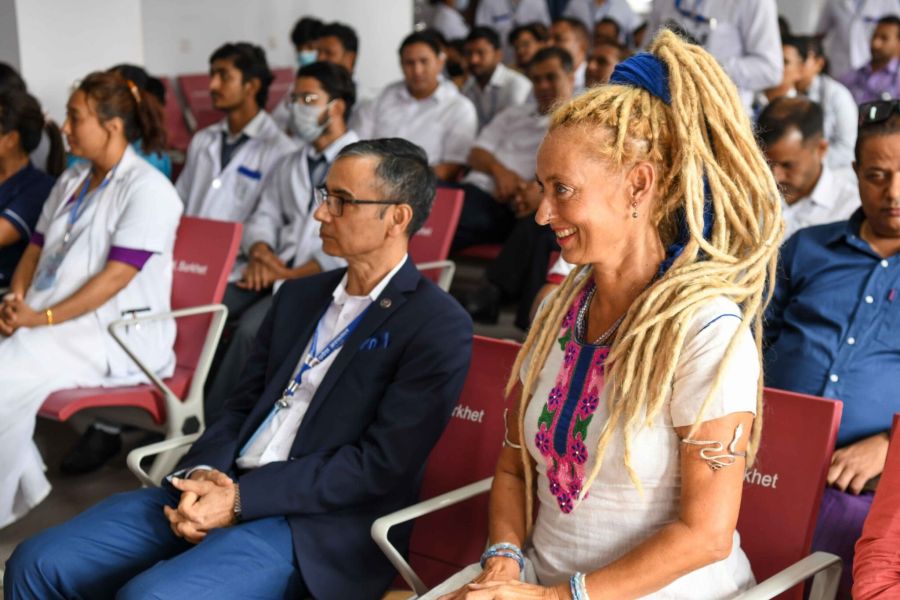
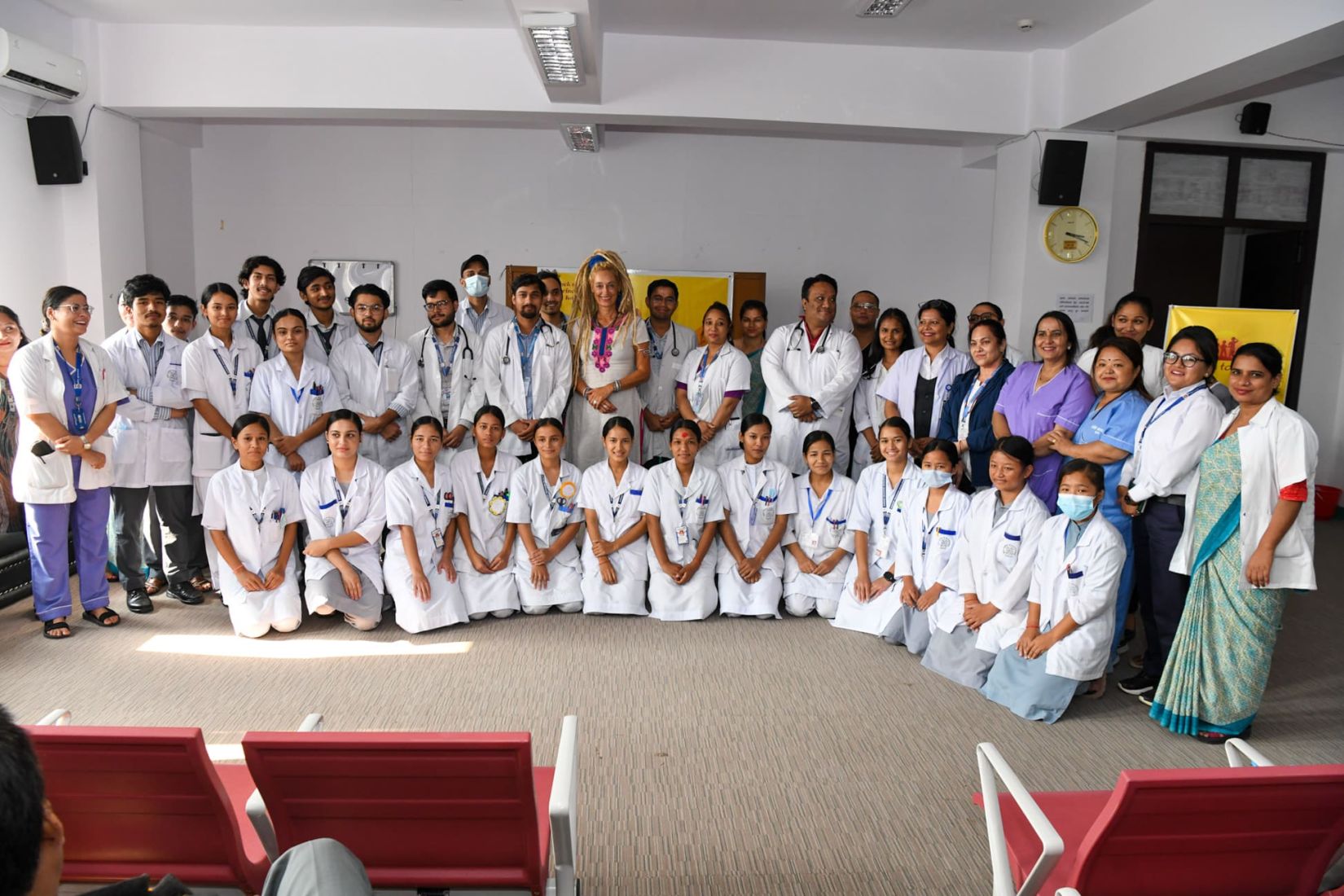
The Inauguration
The ceremonial day of the official handover took place on October 8, 2023. In the presence of numerous specialists and hospital staff, Stella Deetjen handed over the devices for often life-saving diagnostics to the hospital director, Prof. Dr. Damber Khada. “Back to Life continuously works on strengthening the capacities of healthcare facilities in Karnali and other needy regions for the benefit of all people in Nepal. I am confident that this cardiology department will save many lives in Karnali,” Stella reaffirmed in her speech.
The hospital director continued with his words of thanks and emphasized the ongoing good cooperation, especially during the times of the pandemic. Back to Life had donated essential clinical equipment to the hospital, including anesthesia machines, patient monitors, and X-ray devices.
By the opening of the department, a queue had already formed in the lobby, and Stella was able to personally attend the first examinations.
“My team in Nepal and I are very pleased that we are succeeding in partly establishing health structures in Nepal from scratch and then continuously improving them. How much our work is appreciated on-site is shown by the coverage on the Nepalese national television news.”
Stella Deetjen
